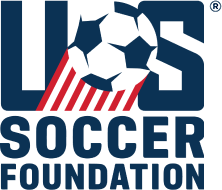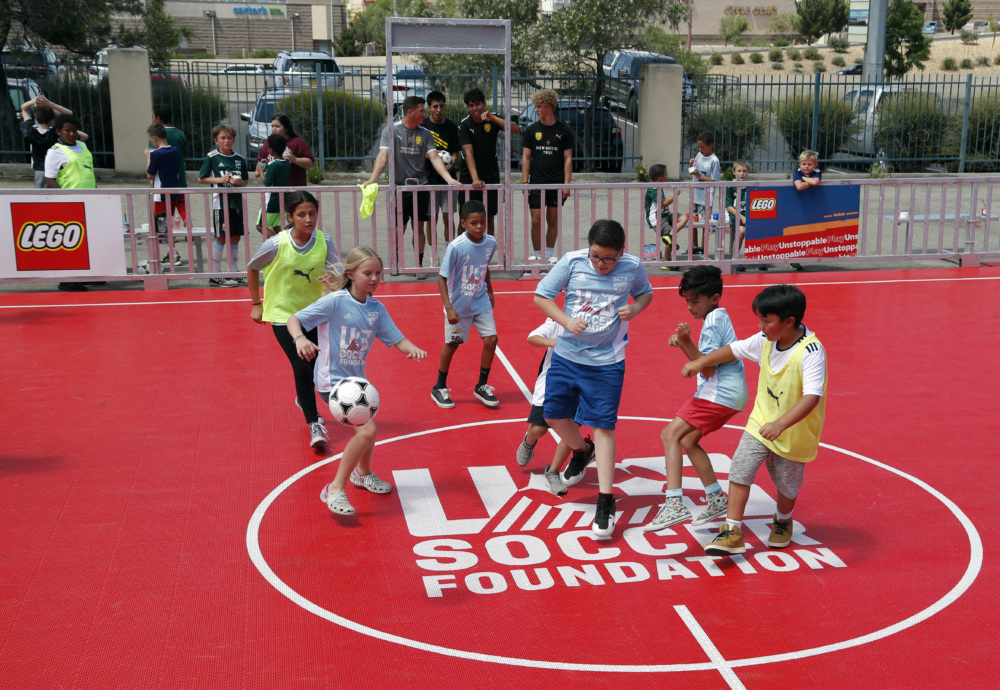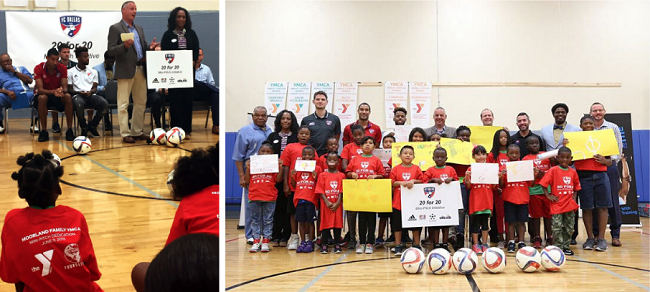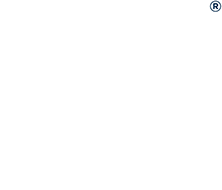

Let soccer do what soccer does.
Together, we can give millions of kids from underserved communities safe places to grow, thrive and build confidence for life.
A Community Champion
In the summer of 2015, Southern New Hampshire University (SNHU) became the official education partner of Major League Soccer (MLS). This groundbreaking partnership would allow both athletes and staff to gain access to higher education.
Then, in 2016, the U.S. Soccer Foundation teamed up with adidas, MLS, and SNHU for the 20-for-20 Mini-Pitch Initiative in honor of MLS’ 20th season, which would see one mini-pitch come to each MLS club’s city.

In addition to the mini-pitch donation, SNHU also committed to providing full scholarships to one community member at each organization. “We loved the ability to go across North America – both the United States and Canada – and build safe places to play for kids often in underserved communities,” says SNHU’s Stephen Thiel. “Where it really became a no-brainer for us was the ability to identify community champions in each of these club marketplaces and deliver a full scholarship in partnership with each mini-pitch event.”
WHO TO CHOOSE?
For SNHU, the main question to answer when selecting an individual to receive a scholarship through the 20-for-20 Mini-Pitch Initiative was fairly straightforward: who would lead their communities in the future and simply might not have had equitable access to education in the past?
In Dallas, this community champion was Leonda Kelley, who grew up going to the very same community center at which she has worked for more than a decade, the Moorland Family YMCA.
When Keith Vinson, the YMCA’s Vice President of Operations, was approached about who should receive the scholarship, he immediately thought of Leonda. “She was just the right fit for it,” Keith remembers. “She is a person that has worked in the Y for a long time. She’s a wife, a mother, that just needed some success in her life as it related to education, and she was one that I thought would be dedicated toward the process.”
At the time, Leonda had been going to school – taking one class at a time – at a local university, but the financial burden and the timing of her classes made things difficult. “Going to school can be costly and I didn’t have a lot of scholarship money or anything like that,” she says.
Leonda describes the moment she heard that she would be receiving the scholarship as a godsend. Her thoughts then almost instantaneously went to her parents. “I have really good parents. I knew that they really wanted me to go to college and get my degree,” she says. “Now I’ve got this scholarship, there’s so many people that thought enough of me to give me this opportunity, this chance, so with that I can’t let anybody down. When I told my mom and dad, it was just happiness, I don’t know how else to describe it.”

GROUND-LEVEL IMPACT
Since receiving a scholarship from SNHU in 2016, Leona has found that the flexibility in her course schedule has suited her much better, allowing her to more easily balance work, life, and school. “I like college so much more now because it’s online,” she says. As the senior program director at the Y, Leonda wears several hats, so being able to arrange her class time in a way that best suits her schedule has proven to be incredibly valuable.
Leonda is also finding that she can apply a lot of what she is learning in school to her professional life. “My degree is in community health and that is basically what I do in my job right now,” she says. “Even though we’re the YMCA…we focus on the whole person – mind, spirit, and body. All these classes help me so much in my everyday job.”
And Leonda is not the only one who has noticed a positive change. “You know how sometimes you can almost just physically see a shift in someone? That’s what I saw,” Keith says of Leonda. “I just saw her behaviors related to her work patterns change. I saw her thought process change as it relates to looking at how to handle conflict, how to do programming differently, how to look at things differently…I saw her reach out into the community even more so. It was just this whole thing of confidence that she gained when she started back up [with school]. It was the intentionality around her schedule to be able to put in the time that she needed to succeed.”
On a personal level, Leonda steadfastly plays the role of community ambassador through it all. “She has a huge impact on the facility in terms of our overall operations just because of the lives that she touches day in and day out,” Keith raves.
And while the youth at the YMCA might not know every detail about the hard work Leonda (who can be known to the kids as “snack lady”) has been putting in over the last four years, Keith maintains that what they do see “is this proactive person who is making change and making an impact in our community.”
A DIFFERENT TRANSFORMATION
Leonda is quick to point out that the mini-pitch has also had significant, positive effects on local community members. “It was just an old basketball court before the mini-pitch got there,” she remembers. “It was just to the point that we had little potholes out there and it was sometimes kind of dangerous to try and play full court because you didn’t want to trip or twist an ankle.”
“When you think of the YMCA, you think about all the kids in the program. Kids should be outside playing,” she stresses. “For Moorland, for a short while, we didn’t have a lot of it out there mostly because the equipment was really old. It was just really sad.”
But now, with the addition of the mini-pitch, Leonda says “it just tied everything together.”

“The biggest impact has been the organic movement that it’s had,” Keith says about the mini-pitch. “We have young adults, teenagers coming playing on the mini-pitch on a regular basis. I like the organic play on it because people know this is a safe place where they can come and they can engage.”
Importantly, says Keith, “they know that they have a place here that they can come and play soccer.”
The mini-pitch has created such a buzz around soccer, in fact, that the YMCA is planning to offer indoor futsal programming in the fall to keep up with demand.
CONNECTING THROUGH SOCCER
Leonda’s story in Dallas is just one of many success stories to come out of the 20-for-20 Mini-Pitch Initiative. It’s also the other scholarship recipients, the local youth who have new safe places to play, and the special relationships that have developed through the project that have defined its success. “To see the impact that a local sports team has on their community and then, ultimately, seeing the kids’ faces when we opened the pitch and allowed them to play futsal, that’s [what] they’re going to remember for a long time,” says Stephen.
For Keith, the project “went far beyond kids playing soccer. It gave an opportunity to someone who really loves young people and really loves to see them succeed and it went to the right person.”
Thinking back on this whole journey – the stressful times of juggling school, work, and everyday life – Leonda reflects on how, as a recent graduate as of this month, she has been able to overcome the obstacles and challenges in her life. “I’d like to think that hard work really does pay off. Anything worth having is worth working for. If you’re not willing to put in the work, then whatever you’re putting into it is exactly what you’re going to get out of it.”
Her advice? “You just have to have a positive outlook.”
The mini-pitch at the Moorland Family YMCA in Dallas is one of more than 265 U.S. Soccer Foundation mini-pitches across the country. Interested in bringing a mini-pitch to your community? Suggest a location here.
